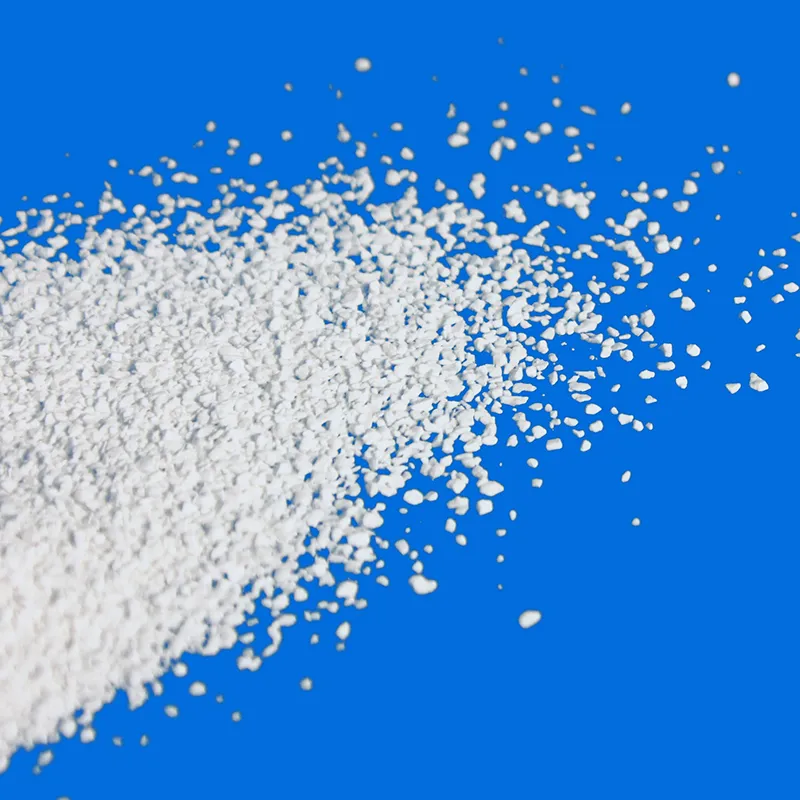
Understanding the Hazards of Sodium Benzoate in Food Products and Its Safety Concerns
The Dangers of Sodium Benzoate Understanding the Risks
Sodium benzoate is a widely used chemical, primarily recognized as a preservative in various food and beverage products. While it is generally regarded as safe when consumed in small quantities, concerns have arisen regarding its potential dangers, especially in the context of food safety and health implications.
What is Sodium Benzoate?
Sodium benzoate is the sodium salt of benzoic acid, a compound that occurs naturally in certain fruits, such as cranberries, prunes, and apples. It is commonly employed in the food industry to prevent spoilage and to inhibit the growth of mold, yeast, and some bacteria. It can be found in a variety of products, including soft drinks, salad dressings, sauces, and pickles.
Regulatory Status
The U.S. Food and Drug Administration (FDA) has classified sodium benzoate as Generally Recognized As Safe (GRAS) when utilized within certain limits. However, despite its extensive use and regulatory approval, research and consumer concern continue to evolve, shedding light on various potential health hazards.
Health Risks and Concerns
1. Benzoic Acid Metabolism When ingested, sodium benzoate can be metabolized into benzene, a known carcinogen, especially when combined with ascorbic acid (vitamin C) under certain conditions, like exposure to heat and light. Benzene is linked to increased risks of leukemia and other blood disorders, prompting serious concerns about the safety of consuming sodium benzoate-laden products, particularly soft drinks.
sodium benzoate dangerous

2. Allergic Reactions Some individuals may experience allergic reactions to sodium benzoate, leading to symptoms like hives, asthma attacks, or gastrointestinal distress. Although these reactions are rare, they indicate the necessity for consumers to remain vigilant regarding their personal sensitivities to various food additives.
3. Hyperactivity in Children Research has indicated a potential correlation between sodium benzoate and hyperactivity in children, particularly when combined with artificial colorings. A prominent study from the University of Southampton in the UK suggested that these compounds could exacerbate attention-deficit hyperactivity disorder (ADHD) symptoms, leading parents to rethink their children's diets, particularly concerning processed foods.
4. Long-term Effects The long-term health impacts of regular consumption of sodium benzoate remain largely unclear, with ongoing studies exploring its effects on metabolic processes, chronic health conditions, and overall wellness. Some researchers speculate that consistent intake of sodium benzoate could contribute to more significant health risks over time.
Conclusion A Call for Caution
While sodium benzoate is considered safe at low levels, the growing body of evidence suggests that consumers should approach its consumption with caution. Awareness of the potential risks associated with this common preservative is crucial, particularly for vulnerable populations such as children, pregnant women, and individuals with existing health conditions.
To protect your health, it is advisable to read labels carefully and be mindful of the presence of sodium benzoate in food and beverage products. Opting for fresh, unprocessed foods whenever possible can significantly reduce exposure to not only sodium benzoate but also other potentially harmful additives.
In summary, while sodium benzoate serves a functional purpose in food preservation, its potential dangers warrant careful consideration. Awareness, moderation, and informed dietary choices are key to minimizing risks associated with the consumption of this ubiquitous preservative. As consumers, it is our responsibility to stay informed and advocate for transparency in food labeling to ensure our health and the health of future generations.
-
Pure Sodium Dichloroisocyanurate Dihydrate | Powerful DisinfectantNewsAug.29,2025
-
Industrial Chemicals: Quality & Purity for Every IndustryNewsAug.28,2025
-
Nitrile Rubber Honoring Strict Production StandardsNewsAug.22,2025
-
Aspartame Ingredients Honoring Food Safety ValuesNewsAug.22,2025
-
Fertilizer for Balanced Plant NutritionNewsAug.22,2025
-
Cyanide Gold Processing with High Purity AdditivesNewsAug.22,2025
-
Formic Acid in Textile Dyeing ApplicationsNewsAug.22,2025
Hebei Tenger Chemical Technology Co., Ltd. focuses on the chemical industry and is committed to the export service of chemical raw materials.
-

view more DiethanolisopropanolamineIn the ever-growing field of chemical solutions, diethanolisopropanolamine (DEIPA) stands out as a versatile and important compound. Due to its unique chemical structure and properties, DEIPA is of interest to various industries including construction, personal care, and agriculture. -

view more TriisopropanolamineTriisopropanolamine (TIPA) alkanol amine substance, is a kind of alcohol amine compound with amino and alcohol hydroxyl, and because of its molecules contains both amino and hydroxyl. -

view more Tetramethyl Thiuram DisulfideTetramethyl thiuram disulfide, also known as TMTD, is a white to light-yellow powder with a distinct sulfur-like odor. It is soluble in organic solvents such as benzene, acetone, and ethyl acetate, making it highly versatile for use in different formulations. TMTD is known for its excellent vulcanization acceleration properties, which makes it a key ingredient in the production of rubber products. Additionally, it acts as an effective fungicide and bactericide, making it valuable in agricultural applications. Its high purity and stability ensure consistent performance, making it a preferred choice for manufacturers across various industries.





